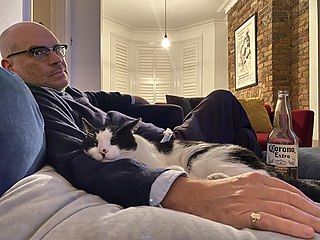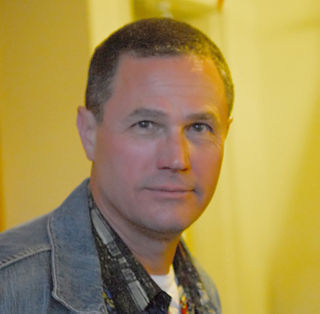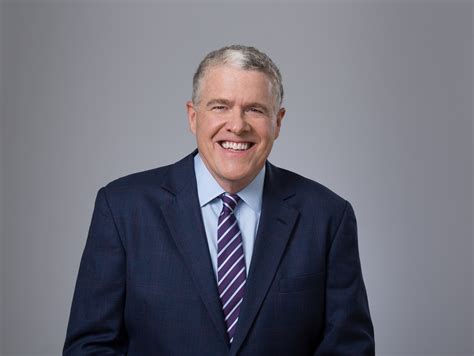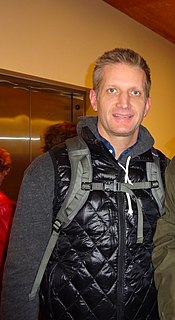A Quote by Roger Zelazny
I do admire great essayists. I'm a particular fan of good nature writing. People like Robert Finch. I read great quantities of writing by naturalists. I've been studying the genre for years.
Related Quotes
For many years, I've always been attached to what they call the Great American Songbook, and Kern was a great leader of that because he had the classical training of Europe. He impressed all the greatest composers, like Cole Porter and Gershwin. They couldn't believe he was writing the songs he was writing.
There are a number of things that I'm trying to get into the books. There's a meta-fictional aspect, if I may use that pretentious word, to writing anything. You're writing in the shadow of all the people that have gone before and, in a way, you're having a dialogue with them. As someone who's read J.R. Tolkien and Robert E. Howard and all the great fantasists before, this is almost my answer to them.
I like Quentin Tarantino, especially the early films, but I'm a big fan of Billy Wilder and Preston Sturges... you know, people were writing great dialogue back then. It's as if people only have the memory of the last 15 years. So, before Tarantino no one was writing witty dialogue? That's ridiculous. Why do we have to keep referring to Tarantino?
You've got to be a good reader. So whatever genre that you're interested in, read a lot of books about it and it's better than any kind of writing class you'll ever take. You will absorb techniques and then in a lot of cases you can just start writing using the style of the book or the author that you admire and then your own style will emerge out of that. Be a diligent reader and then try to write seriously, professionally and approach everything in writing in a professional way.
Just play the moment, that's the fun of it. You just play the moment. It's great writing and very clever writing, I think it's witty. And I have those great clothes. You have a great, witty, intelligent script and you look like a million dollars, because we have a great costumer, and it's a pretty good place to begin.
Good writing is good writing. In many ways, it’s the audience and their expectations that define a genre. A reader of literary fiction expects the writing to illuminate the human condition, some aspect of our world and our role in it. A reader of genre fiction likes that, too, as long as it doesn’t get in the way of the story.
Write what you want to read. So many people think they need to write a particular kind of book, or imitate a successful style, in order to be published. I've known people who felt they had to model their book on existing blockbusters, or write in a genre that's supposed to be "hot right now" in order to get agents and publishers interested. But if you're writing in a genre you don't like, or modeling yourself on a book you don't respect, it'll show through. You're your first, most important reader, so write the book that reader really wants to read.






































